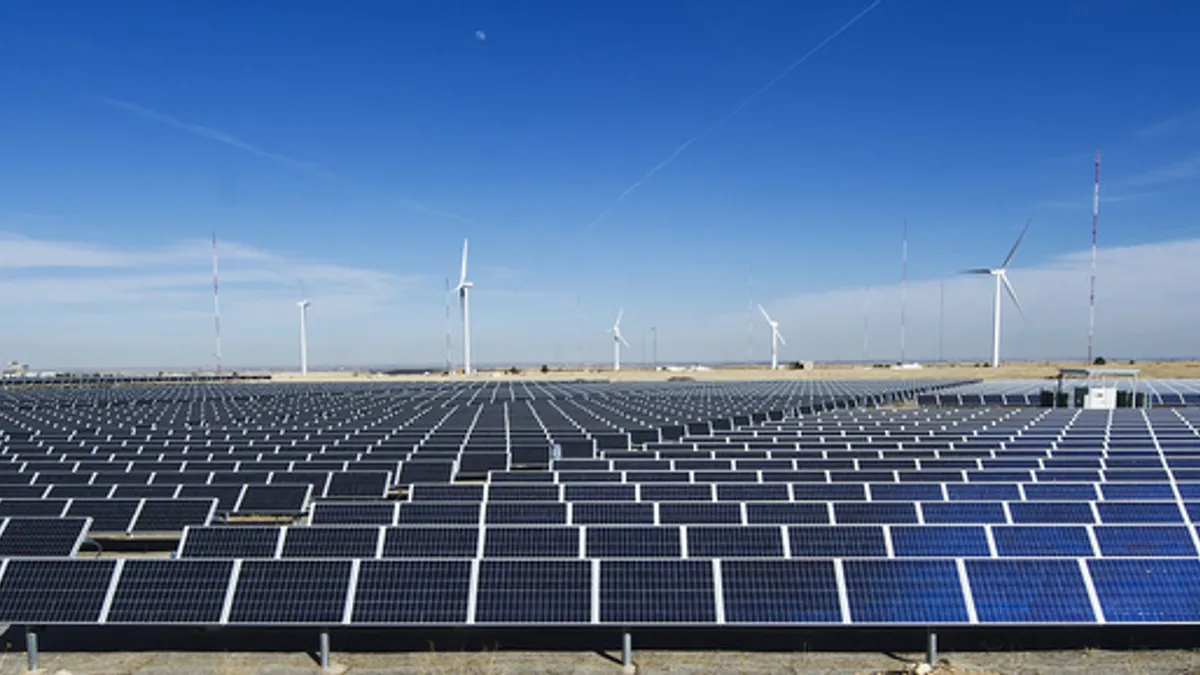Dive Brief:
- Opponents of renewable energy mandates in North Carolina are making a late-session push to persuade legislators not to allow the mandates to increase, the Associated Press reports.
- The American Energy Alliance (AEA) held a forum at North Carolina’s General Assembly office building this week to present the case in favor of freezing the state's renewables mandate at 6%. If left untouched, the mandate would increase to 10% in 2018 and 12.5% in 2021.
- The Renewable Energy and Energy Efficiency Portfolio Standard (REPS), passed in 2007, hurts North Carolinians “by increasing energy prices, decreasing household incomes, and stagnating job growth,” according to AEA. Renewables advocates argue otherwise.
Dive Insight:
Duke Energy, North Carolina’s dominant electric utility, helped design the 2007 legislation, is meeting its REPS obligation, and is neutral on the freeze, according to Spokesperson Randy Wheeless.
“[The bill] does include a provision calling for a stakeholder process to chart a future path for renewables policy," he said. “We like that.”
There is no set date for when the North Carolina General Assembly will adjourn for the year, but there's nothing scheduled on the Assembly's legislative calendar after Sep. 22. Renewables advocates balked at the late-session push by the AEA, saying the mandate should stay in place.
“It is a common misconception that policies that drive the growth of renewables and energy efficiency are costly to utility customers,” according to a report on the efficiency mandate from the North Carolina Sustainable Energy Association (NCSEA). The group found that “the primary driver behind rate increases has been charges to pay for conventional generation like coal and natural gas.”
“According to [North Carolina Utilities Commission] rate information, the average monthly residential bill is estimated by the Commission to be $107.04 and $106.67 for [Duke Energy Carolinas] and [Duke Energy Progress] customers, respectively,” NCSEA’s study reports. “Within this total, monthly REPS charges are nominal: $0.39 and $0.83 per month, respectively.”
The Renewable Energy and Energy Efficiency Portfolio has saved ratepayers $162 million since 2007 and is expected to save $651 million by 2029, the study adds.
Wheeless’s last home electricity bill from Duke Energy Carolinas, he said, confirming the study’s findings, was $154. The Renewable Energy Rider was $0.39.















